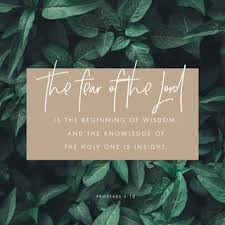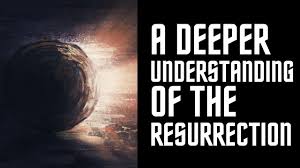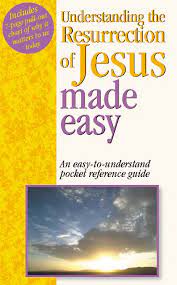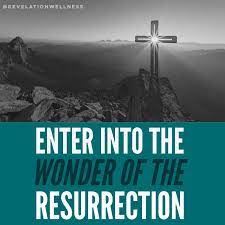Anatomy of the human eye
As we consider looking beyond what we can see, it might be helpful to review how we see physically.
The human eyes work very similarly to a camera. When you look at an object, the light it generates enters your eyes. The light first passes through the corneas, which begin focusing the light. It then passes through to the pupils. The size of the pupils changes to regulate the amount of light entering the eyes.
The light is then focused through the lenses and onto the retinas. The retina is a light-sensitive layer in the back of the eye that contains highly evolved cells called rods and cones. The retina then changes the image into electrical and chemical impulses, which are transmitted along the optic nerves and into the visual center of the brain. It is when the image reaches your brain that vision occurs.[1]
Man is a remarkable creation of God. He is made physically perfect for the lifetime God has designated for him (Ps. 90:10). However, as remarkable as Creation is, God’s work of salvation has resulted in our ability to see spiritually, the things we would normally overlook.
Seeing supernaturally
I love the Old Testament because of its value in capturing the wonders and works of God. As I prepared for this series, the scripture text that came quickly to mind was the account of the prophet Elisha in 2 Kings 6:8-23. This passage shares the incident in which the King of Syria, enemy of Israel, sent raiders to capture Elisha. You will enjoy reading the entire text as it shows the confidence of Elisha as he prepares to meet this great army that surrounded the city of Dothan.
2 Kings 6:15-17 is most relevant to our discussion on seeing with spiritual eyes. We may find the advice Elisha offered his servant relevant to us as we face the challenges of 21st century living.
And when the servant of the man of God arose early and went out, there was an army, surrounding the city with horses and chariots. And his servant said to him, “Alas, my master! What shall we do?” So he answered, “Do not fear, for those who are with us are more than those who are with them.” And Elisha prayed, and said, “LORD, I pray, open his eyes that he may see.” Then the LORD opened the eyes of the young man, and he saw. And behold, the mountain was full of horses and chariots of fire all around Elisha.
The chariots of fire that the servant saw were heavenly hosts primed to do battle with the Syrian army on behalf of Elisha. Elisha saw the heavenly army and recognized that there was no need to fear. He saw past the potential danger and saw God at work. After Elisha’s prayer, the servant, through God’s enablement, saw that the mountain was full of God’s presence. He looked beyond what he could see. He looked from God’s perspective.
Kingdom reality
Seeing with spiritual eyes begins with understanding who God is and our position in the Kingdom of God.
Broadly speaking, the kingdom of God is the rule of an eternal, sovereign God over all the universe. Every authority that exists has been established by God (Romans 13:1). So, in one sense, the kingdom of God incorporates everything that is. More narrowly, the kingdom of God is a spiritual rule over the hearts and lives of those who willingly submit to God’s authority.[2]
God is the Almighty Sovereign who manages the affairs of the world from heaven. Through His providential will, God orchestrates every event in our lives. Our position in Christ elevates us to God’s children and joint heirs with Christ (Rom. 8:16-17). We are the recipients of His promises, His privileges, and His presence (Eph. 1:3-5).
Kingdom reality does not deny the presence of sin and its outcomes on the world. We are sadly aware that we live in a fallen world. However, we know three things. First, Jesus Christ has overcome the world (John 16:33). Secondly, we are overcomers, too. (Rom. 8:37; 1 John 5:4). Finally, we know how history will end. WE WIN! (Rev. 21:1-8)
Looking beyond what we can see
Looking beyond what we can see allows us to “reframe” our experiences through the lens of kingdom reality. Closed doors are seen as God’s protection. Waiting is seen as God’s time of preparation—either of us or our desired end.
Seeing this way equips us to move forward in the midst of trouble versus being overwhelmed. We do not lose hope. Instead we look past what we see physically. We see God (2 Cor. 4: 17-18).
It’s not that we spiritualize everything that happens to us, but we truly believe what the Apostle Paul wrote in his letter to the church in Rome: “All things work together for the good of those who love the Lord who are called according to His purpose.” (Rom. 8:28)
Seeing with spiritual eyes is not “mystical” like a third eye. Nor is it “recreational” like fortune telling or a Ouija board. It is “relational”. Just as the light helps the physical eye to focus, so our focus on kingdom reality helps the spiritual eye to see from God’s perspective and power (Luke 1:37; Jer. 32:17,27). Just as the retina physically changes the image we see into sight, the Holy Spirit informs us as to what is truth and what is error (Acts 26:18). Bottom-line is this. Looking beyond what we can see is dependent on the Source of Light who is Jesus Christ. “In His light we see light” (Ps. 36:9)
[1] www.ceenta.com/
[2] Gotquestions.com, “The Kingdom of God”










